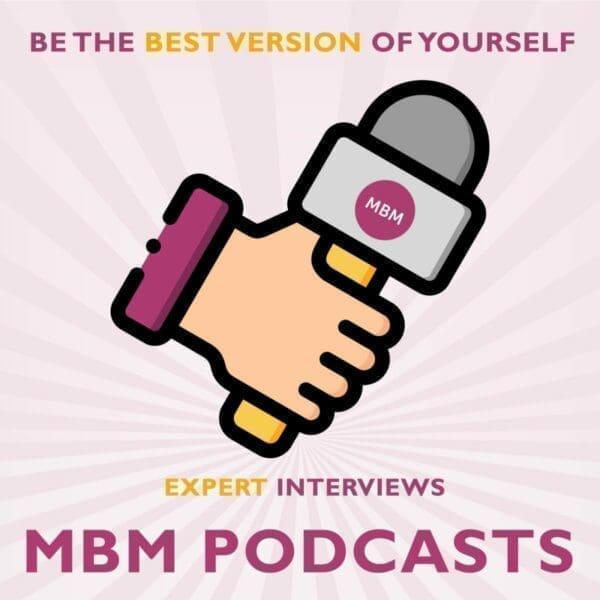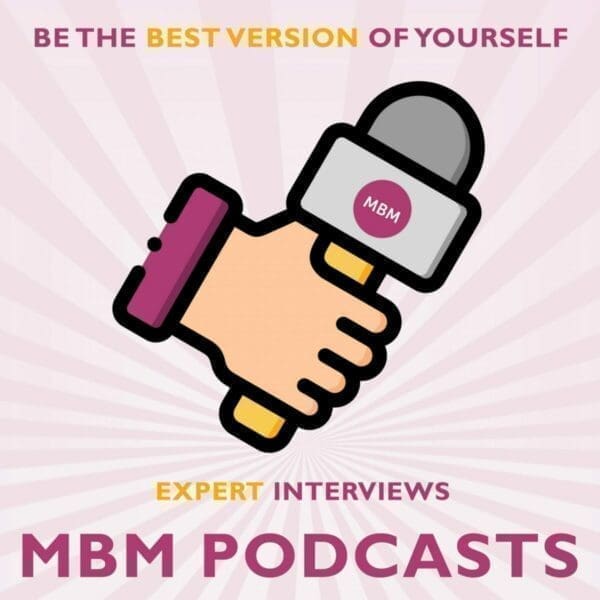Podcast: Play in new window | Download
Grocery Guru Episode 21: Hagglebots and Fishing Grenades
Join Andrew Grant and Darren A. Smith in the twenty-first episode of Grocery Guru discussing supermarkets using Hagglebots and Fishing Grenades
You Can Read the Full Hagglebots and Fishing Grenades Episode Transcript Below:
Darren A. Smith:
Hello. You’re here with us on episode 21 with the Grocery Guru. Andrew, our grocery guru, how are you?
Andrew Grant:
Very well, Darren, yeah. You? You good?
Darren A. Smith:
Yes, very good. Andrew, this week we are talking about hagglebot, something you know something about, I think.
Andrew Grant:
Wasn’t that Robbie Coltrane in the Harry Potter films? Big guy that lived outside the school, isn’t he?

Darren A. Smith:
I think that was Hagrid.
Andrew Grant:
Oh, Hagridbot. Sorry, I misheard you. So not a Hagridbot, a hagglebot.
Darren A. Smith:
We’re talking about hagglebot. So I’ve got this piece that I’ve done some research on with hagglebot, and what I’d like to do is get your take as the grocery guru on what’s happening in the world of supermarkets, haggling, negotiating. So I’m going to read some of this out, but before I do, what’s your understanding of hagglebot?
Andrew Grant:
Well, I suppose it’s this new AI, artificial intelligence, way of negotiating. So obviously I think come out of the States. I think maybe we might use it where they automate the negotiation process. I mean in my world, it goes back to one of the scariest things I ever saw was an e-auction that we did years back. An e-auction for tinned tuna, I think it was. And Jesus, it was brutal negotiation I have ever seen when you let basically computers set the prices and suppliers don’t know who they’re bidding against. Absolutely brutal. And if I’d have been … if I’d have been the suppliers, I’d have been in tears at the end.
Darren A. Smith:
It’s like a blind auction, isn’t it?
Andrew Grant:
Yeah, literally. You place your bid, a huge amount of business, and no supplier can afford to lose it, and yet you’re bidding blind against a competitor that suddenly says no, you need to come down 50 more dollars a ton. So I guess you could call that … I mean that was serious hagglebotting, to use your phrase.
Darren A. Smith:
Well, it seems to be coming up more and more. Let me share this with you. There is the Olympics for hagglebots, they’re on their 11th year, and it’s artificial intelligence pitched against artificial intelligence and/or pitched against humans. And tends to be universities. The winners tend to be Turkey or Japan with the best hagglebots. We’re 11 years in but the first haggle bot was developed in the 1980s and was called Negoisst. Never heard of that. But here’s a statement I’d like to share with you and see what you think, “Humans have the upper hand understanding emotion and subject matter expertise, but can falter when there are many issues.”
Andrew Grant:
Yeah. I mean if you think about it, when you bid on eBay for something, that’s a sort of electronic negotiation, isn’t it? You place your bid and then you get told, “Oh, you’re being outbid.” And that works in a very black and white linear way, but it must come down to our world of food. There’s a specification for product, there’s delivery times, there’s payment terms, there’s so many, as we call them, [inaudible 00:03:32]. Could you program a computer to get all those nuances? And at the end of the day, it is looking somebody in the eye and doing a deal with them. So I can see electronic negotiation, haggling, whatever you want to call it, working when it’s very simple transactions and you’ve got thousands of suppliers. I can see it being beneficial to an organization to use almost like tick box buying. And in the last week, there’s been a few news items where a particularly large online player has been sending out tick box requests for terms of doing business. In my day, it used to be called something like a grenade fishing.
Darren A. Smith:
Grenade fishing.
Andrew Grant:
You throw an email out there with a whole load of outrageous requests, let it explode amongst the supply base, and you guarantee 50% of the fish will land up on the shore.
Darren A. Smith:
Wow. And I guess the online retailer, we’re talking about Amazon had done some of this. They’ve been in the press with this stuff, haven’t they?
Andrew Grant:
Yeah, there’s been some press about them.
Darren A. Smith:
All right, well let me ask you this. Walmart, you’ve mentioned, I think. They have an AI system of negotiating called Pactum, Sounds like something else, negotiating contracts and prices. But let me try this one on you. If everything is known, so this is from the AI chatbot Olympics guys, the founder, negotiations should never have to happen at all. You need zero rounds and the deal is struck immediately if everything is known. What do you think about that?
Andrew Grant:
I think they need to get out more. Come on, the world’s not like that. I mean think back to what we used to do, even if you knew absolutely everything, you’d still ask for that extra few P, wouldn’t you?
Darren A. Smith:
Yeah, you’re would. I think these guys are wrong.
Andrew Grant:
Yeah, well that’s the bit that says … I mean we’ve always said negotiation, and we do an exercise, don’t we, at [inaudible 00:05:51]? Negotiation workshops, the first exercise we do. And we prove that if you put six sets of two people doing exactly the same negotiation with exactly the same brief and knowledge, you get six different results, because it’s generally the person that’s the most aggressive, the most pushy, the most-
Darren A. Smith:
Ambitious.
Andrew Grant:
Ambitious, yeah. The most ambitious gets the better deal. So yeah, computers can do so much, but the minute you stick human beings in the mix, emotions get involved. Some human beings are more naturally aggressive than others. Some are more passive. Some people are just having a good day or a bad day, and it’ll change a negotiation.
Darren A. Smith:
Absolutely. Well, here’s another bit. They’re saying that within three minutes of a deal, the bots, by looking at our facial recognition, the pitch of our tone, how much it changes, can predict the outcome.
Andrew Grant:
I can imagine that. I mean anybody that’s a card player, the best card players are those that can read their opponent’s mannerism, what have you. We’ve never got into that. I’ve never got into that side of negotiation, the way people look and behave, but you do tend to pick up, don’t you, whether somebody is comfortable? I remember we always talk about never look comfortable in a negotiation. If you’re sitting back in your chair with your arms folded and your feet up with a great big Montecristo cigar, you’re possibly making too much money, as opposed to sitting forward, looking a little bit on edge, and using the language of, “You’ll have the coat off my back, Darren, next.” We all do that gamesmanship.
Darren A. Smith:
Well between this, I think that makes us very good trainers. I’m very interested in the behavioral side of it rather than the techniques. So I’m interested in that body language that says what are you really saying to me? And those little words that we use, which are, “About 21%,” which really means it’s not 21%, it’s much, much more or much, much less. All right, Andrew. So what does this mean for supermarkets, grocery? Is the account manager dead? We don’t need them anymore. They’re obsolete.
Andrew Grant:
I don’t think so. I think we have talked in previous ones of this about how the account manager’s job is going to morph into more of a shopper insight manager and that having the skills of understanding their shoppers almost as well as they do is massively important for account managers going forward. Yeah, more negotiation will go online. Relatively undifferentiated products, so bags of sugar, bags of flour, where there isn’t a massive specification, pretty easy to buy that on a e or haggle platform. But once it gets complicated and the business gets big, you’re going to need the human …
Darren A. Smith:
Andrew, I think we’ve just-
Andrew Grant:
[crosstalk 00:09:13].Darren A. Smith:
Oh, sorry. The broadband’s just catching up. Slight glitch, but I think I got the gist of what you were saying. Horses for courses [crosstalk 00:09:20].
Andrew Grant:
Yeah, there does seem to be a bit of a delay. I hope the recording’s better.
Darren A. Smith:
All right. I think we were talking about horses for courses there in terms of negotiation. If you’ve got a very standard, basic product, then it’s likely more e-auction. Something a bit more complex is going to be more negotiating with a human. And then we’ve got shopper insight, which is going to be the real battle ground for the future. All right, Andrew, I think we’ve lost your broadband, so we’re going to bring that to a close and we’ll talk to you next week. Take care.
Take a look at the Hagglebots and Fishing Grenades video on our YouTube Channel. Also, check out our award-winning blog.




